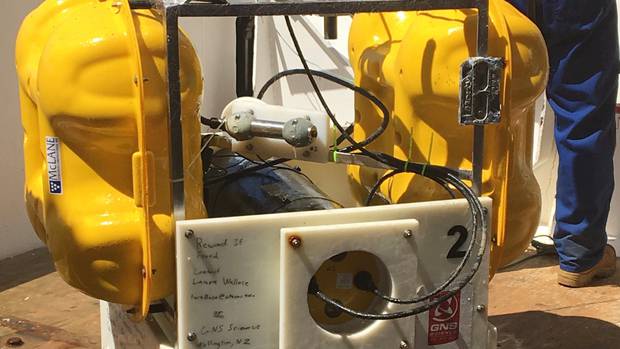
The high-tech instruments were deployed on the seafloor off the Hawke's Bay coast in late 2018, and have been recording earthquakes at New Zealand's largest and most active fault, the Hikurangi Subduction Zone.
While most of the instruments installed were successfully recovered last year, a few of them did not respond to their release signal during a recent voyage on Niwa's research vessel Tangaroa.
Laura Wallace, of GNS Science, said this happened occasionally, as operating instruments in very deep water was technologically challenging.
The instruments were about the size of a washing machine, are mounted on steel frames, and had large yellow floats.
It was possible they may float to the surface of their own accord and wash up anywhere along New Zealand's east coast.
They were marked with the contact information of either GNS Science, or Columbia University on the side of them.
"The information recorded on the instruments is very valuable to us, and we would love to hear from anyone if they find one of these sensors washed up on the shore," Dr Wallace said.
Initial data from those instruments that had been collected suggested many more earthquakes were happening off the North Island's East Coast than could be detected by the onshore network of instruments operated by GeoNet.
The data collected helps scientists learn more about earthquakes and so-called "slow slip" events at the subduction zone, and what this meant for future earthquakes in New Zealand.
Dr Wallace said the focus of the research project will help to understand how, why, and how often slow-slip events and large earthquakes occur.
Although there have been cases of slow slip events preceding big quakes - like Tohoku in Japan in 2011 - such instances were rare, so scientists say they shouldn't be seen as warning signals.
This research was being undertaken under a five-year Government-funded Endeavour project, led by GNS Science, with major collaboration and contributions from other New Zealand and international partners.
Anyone who finds one of the instruments should phone GNS Science on 04 570 1444.












